My personal library has about 250 books that are directly about the Mississippi River and the communities along its banks. I’ve read most of them, even though my to-read list seems to get longer every year. This year, for a change, I read more books than I bought, so my pile of unread books got a little shorter.
I tend to read in thematic bursts, usually because there’s a topic I want to write about. I started the year intending to read about different kinds of boats that have traveled the Mississippi, but after I read a terrific book on canoes, I detoured to reading a few old travelogues from people who paddled the river. I also went deep with James Eads and the bridge he helped build at St. Louis, then finished the year reading about the native peoples of the Americas.
I generally prefer books that tell stories that aren’t well-known and that avoid self-conscious myth-making. I’m drawn to books that tell the whole story, warts and all.
With that in mind, below are a few books from my 2017 reading list that I highly recommend (in alphabetical order). (Note: While these books were new to me, none was newly published in 2017.)
 1491: New Revelations of the Americas Before Columbus by Charles C. Mann; 2005
1491: New Revelations of the Americas Before Columbus by Charles C. Mann; 2005
An eye-opener that challenged almost everything I thought I knew about the pre-Columbian Americas. Mann covers a lot of territory in this book, from cities that are among the oldest in the world (Huaricanga, roughly 3500 BC) to the only large pre-Columbian city in North America (Cahokia), to the writing systems that developed in the Americas, and to the proliferation of agriculture. Most striking of all, though—at least to me—were the numerous examples of how the natives of the Americas manipulated the natural world for their benefit. Not only were the Americas far more populous than I was taught in school, but their impact on the natural world was so extensive, it left me wondering if there’s such a thing as “pristine” or “untouched” wilderness.
Books and Islands in Ojibwe Country by Louise Erdrich (2014)
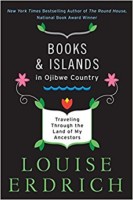 Part travelogue and part memoir, this short book from Louise Erdrich, one of America’s great contemporary writers, is beautifully written, entertaining and enlightening. As she drove to visit friends and family in northern Minnesota and southern Ontario, she detoured to explore aspects of Ojibwe (Chippewa) Indian culture and language. I was especially captivated by her descriptions of the old birch bark scrolls (mazinibaganjigan in Ojibwe) that the Ojibwe used for centuries to transmit important religious, historical, and mathematical concepts from one generation to the next.
Part travelogue and part memoir, this short book from Louise Erdrich, one of America’s great contemporary writers, is beautifully written, entertaining and enlightening. As she drove to visit friends and family in northern Minnesota and southern Ontario, she detoured to explore aspects of Ojibwe (Chippewa) Indian culture and language. I was especially captivated by her descriptions of the old birch bark scrolls (mazinibaganjigan in Ojibwe) that the Ojibwe used for centuries to transmit important religious, historical, and mathematical concepts from one generation to the next.
Canoes: A Natural History in North America by Mark Neuzil and Norman Sims (2016)
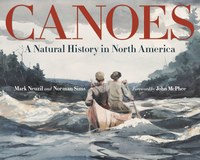 Everything you ever wanted to know about canoes but were afraid to ask. The book is filled with gorgeous illustrations of canoes and the outdoors accompanied by detailed descriptions of canoe design and construction, from the earliest canoes built by Native Americans to modern canoes built with synthetic materials. The detailed descriptions of construction techniques may not be for everyone, but the book has plenty of other material on the historical and cultural significance of one of the simplest and most enduring human inventions ever conceived.
Everything you ever wanted to know about canoes but were afraid to ask. The book is filled with gorgeous illustrations of canoes and the outdoors accompanied by detailed descriptions of canoe design and construction, from the earliest canoes built by Native Americans to modern canoes built with synthetic materials. The detailed descriptions of construction techniques may not be for everyone, but the book has plenty of other material on the historical and cultural significance of one of the simplest and most enduring human inventions ever conceived.
Down the Mississippi by Major R. Raven-Hart (1938)
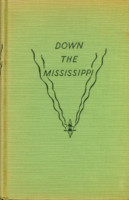 English native Major Rowland Raven-Hart was a world traveler with a fondness for canoes and a refreshing lack of self-consciousness. In 1937, he and a friend put a 17-foot collapsible canoe into the Mississippi River at Hannibal and began a 37-day “cruise” that ended in Baton Rouge. Along the way, they paddled naked, camped, searched for fresh milk, swam naked, and chatted with people living or working on the Mississippi River (clothed, presumably). Raven-Hart paddled the river when it was in the middle of a massive federal effort to re-engineer it into something that humanity could control, and Raven-Hart deeply admired the goals of that work and the people involved in it. He carried a rather snarky and cocky perspective but never crossed the line to being disrespectful. The book is an entertaining read that offers a snapshot of a time when the river was being transformed from a place where people lived and worked to one that would soon be dominated by tow boats and barges.
English native Major Rowland Raven-Hart was a world traveler with a fondness for canoes and a refreshing lack of self-consciousness. In 1937, he and a friend put a 17-foot collapsible canoe into the Mississippi River at Hannibal and began a 37-day “cruise” that ended in Baton Rouge. Along the way, they paddled naked, camped, searched for fresh milk, swam naked, and chatted with people living or working on the Mississippi River (clothed, presumably). Raven-Hart paddled the river when it was in the middle of a massive federal effort to re-engineer it into something that humanity could control, and Raven-Hart deeply admired the goals of that work and the people involved in it. He carried a rather snarky and cocky perspective but never crossed the line to being disrespectful. The book is an entertaining read that offers a snapshot of a time when the river was being transformed from a place where people lived and worked to one that would soon be dominated by tow boats and barges.
Eat Drink Delta: A Hungry Traveler’s Journey Through the Soul of the South by Susan Puckett (2013)
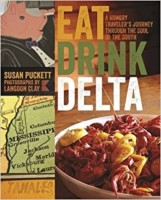 In Eat Drink Delta, Susan Puckett takes a culinary road trip along the Mississippi River from Memphis to Vicksburg, through the region we just call The Delta. Puckett, the former food editor for the Atlanta Journal-Constitution, visits dozens of restaurants along the way, some small and known only to locals and others famous. My list of places to eat grew a lot longer after reading this book. My cookbook also grew a little thicker, as she includes many recipes from the places she visited.
In Eat Drink Delta, Susan Puckett takes a culinary road trip along the Mississippi River from Memphis to Vicksburg, through the region we just call The Delta. Puckett, the former food editor for the Atlanta Journal-Constitution, visits dozens of restaurants along the way, some small and known only to locals and others famous. My list of places to eat grew a lot longer after reading this book. My cookbook also grew a little thicker, as she includes many recipes from the places she visited.
The Pursuit of a Dream by Janet Sharp Hermann (1981)
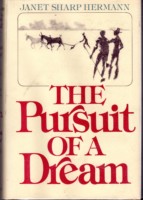 The history we read tends to present narratives in clearly delineated terms, with lines drawn neatly and ambiguities omitted. Life is almost never like that, however. Hermann dives into ambiguities without apology in The Pursuit of a Dream, a story that begins at the plantation owned by Joseph Davis (the brother of Jefferson Davis) on the Mississippi River and follows the parallel lives of the Davis family and the enslaved Montgomery family, whom the Davis’s owned prior to the Civil War. The book covers the unusual plantation management style of Joseph Davis, which gave Benjamin Montgomery the chance to develop skills that he later applied in trying to found a colony for newly freed blacks on the land where the Davis plantations had been. It’s a story about a slave owner introducing a dose of humanity into an inhumane institution, followed by the struggles of those formerly enslaved people to determine the shape and structure of their own lives, even as they are surrounded by people with more money and power who are determined to see them fail. A must-read for anyone interested in the history of the South after the Civil War.
The history we read tends to present narratives in clearly delineated terms, with lines drawn neatly and ambiguities omitted. Life is almost never like that, however. Hermann dives into ambiguities without apology in The Pursuit of a Dream, a story that begins at the plantation owned by Joseph Davis (the brother of Jefferson Davis) on the Mississippi River and follows the parallel lives of the Davis family and the enslaved Montgomery family, whom the Davis’s owned prior to the Civil War. The book covers the unusual plantation management style of Joseph Davis, which gave Benjamin Montgomery the chance to develop skills that he later applied in trying to found a colony for newly freed blacks on the land where the Davis plantations had been. It’s a story about a slave owner introducing a dose of humanity into an inhumane institution, followed by the struggles of those formerly enslaved people to determine the shape and structure of their own lives, even as they are surrounded by people with more money and power who are determined to see them fail. A must-read for anyone interested in the history of the South after the Civil War.
Rails Across the Mississippi: A History of the St. Louis Bridge by Robert W. Jackson (2001)
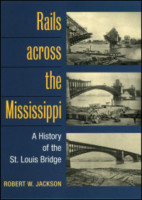 Jackson presents a complete and thorough accounting of the construction of the Illinois and St. Louis Bridge, now known as the Eads Bridge. There are good details about the political and business climate of the day that impacted construction and the later financial failures of the bridge company. In addition, Jackson presents a more complete picture of James Eads, flaws and all, that I found far more interesting than the fawning, one-dimensional profiles that are more common.
Jackson presents a complete and thorough accounting of the construction of the Illinois and St. Louis Bridge, now known as the Eads Bridge. There are good details about the political and business climate of the day that impacted construction and the later financial failures of the bridge company. In addition, Jackson presents a more complete picture of James Eads, flaws and all, that I found far more interesting than the fawning, one-dimensional profiles that are more common.
Run Into Blackness: Feeling My Poetic Gumbo by Henry L. Jones (2008)
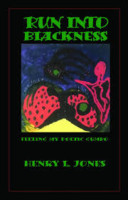 A powerful collection of poems that delve into love, faith, racism, and even the Big River (in a poem called Mississippi River the Baptism). The poems are personal, political, challenging, and moving. I recommend taking small bites and allowing them time to digest.
A powerful collection of poems that delve into love, faith, racism, and even the Big River (in a poem called Mississippi River the Baptism). The poems are personal, political, challenging, and moving. I recommend taking small bites and allowing them time to digest.
Honorable Mention
A Summer in the Wilderness by Charles Lanman (1847): One of the earliest travelogues along the Mississippi River.
Down the Great River by William Glazier (1887): A travelogue written by the controversial (and extremely confident) Glazier, who claimed to have discovered the true source of the Mississippi. (Hint: it wasn’t Lake Itasca but a place he called Lake Glazier.) Some of his work was later discredited, but it’s still a pretty entertaining read.
Enclave: Vicksburg and Her Plantations, 1863-1870 by James T. Currie (1980): A book about the period of limbo that many formerly enslaved people found themselves in as Union forces took over the Mississippi Delta, a bit academic at times but informative.
Hear the River Dammed by Cole Williams (2016): A book of poetic observations about life next to the modern Mississippi River.
Where Goes the River by Albert Tousley (1928): An interesting, if dry, account of what might be the first source-to-sea paddle of the Mississippi River.
What were some of your favorite books about the Mississippi that you read this year?
©Dean Klinkenberg, 2017
Community-supported writing
If you like the content at the Mississippi Valley Traveler, please consider showing your support by making a one-time contribution or by subscribing through Patreon. Book sales don’t fully cover my costs, and I don’t have deep corporate pockets bankrolling my work. I’m a freelance writer bringing you stories about life along the Mississippi River. I need your help to keep this going. Every dollar you contribute makes it possible for me to continue sharing stories about America’s Greatest River!
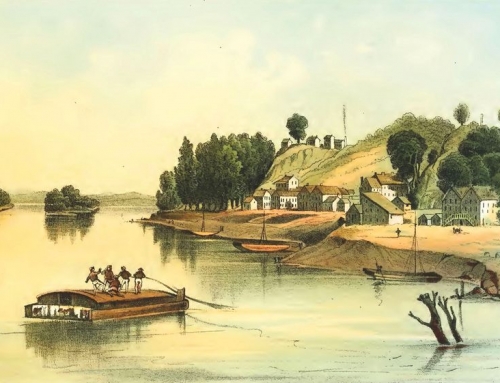

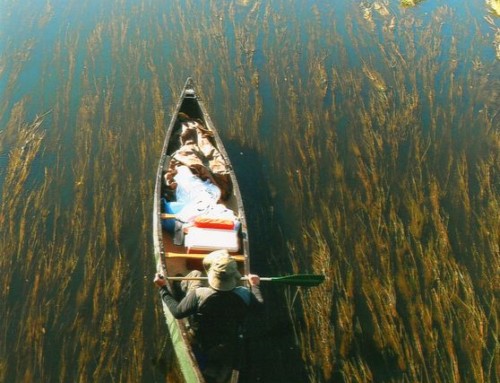
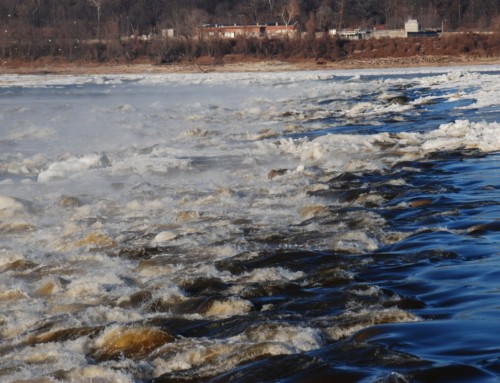
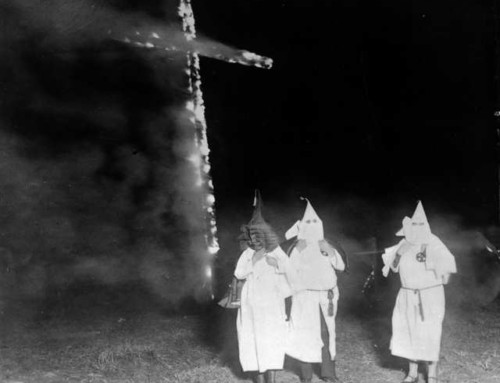
Those are both excellent books. Good choices!
Read both Wicked River and Mississippi Solo this last year. Got a few off your comprehensive reading list in line for 2018.